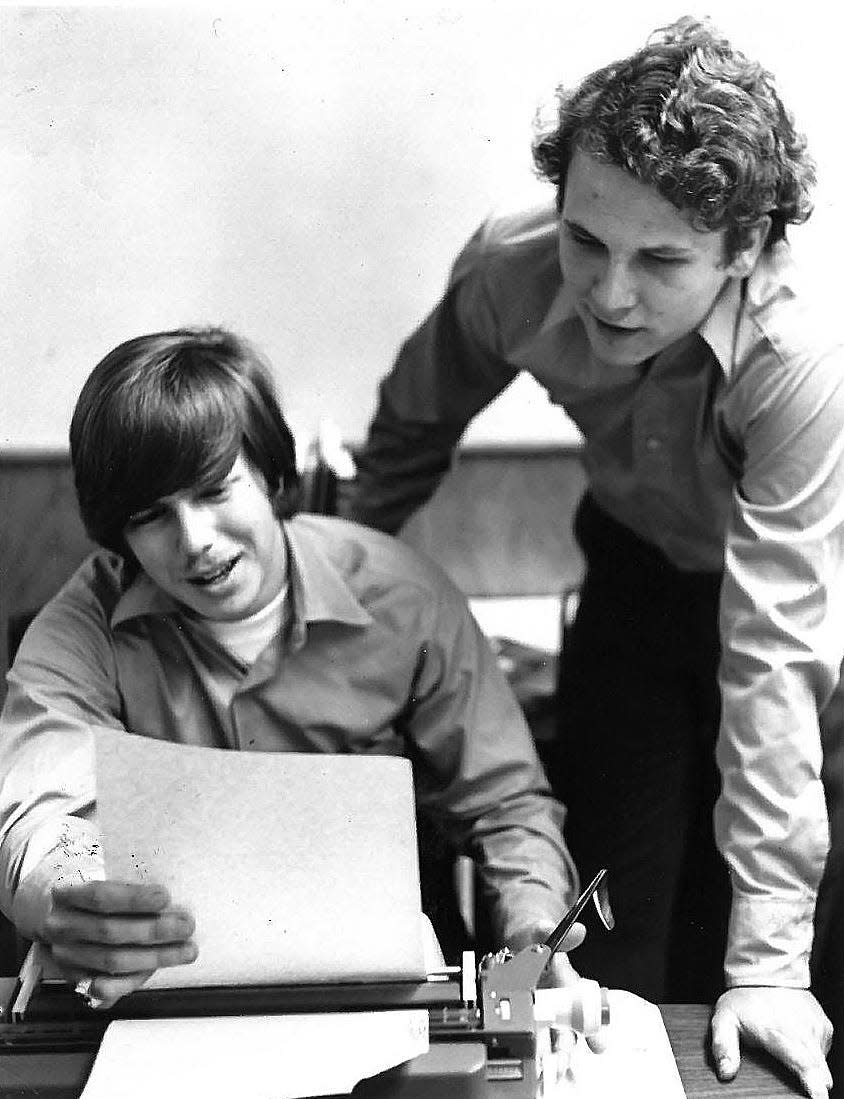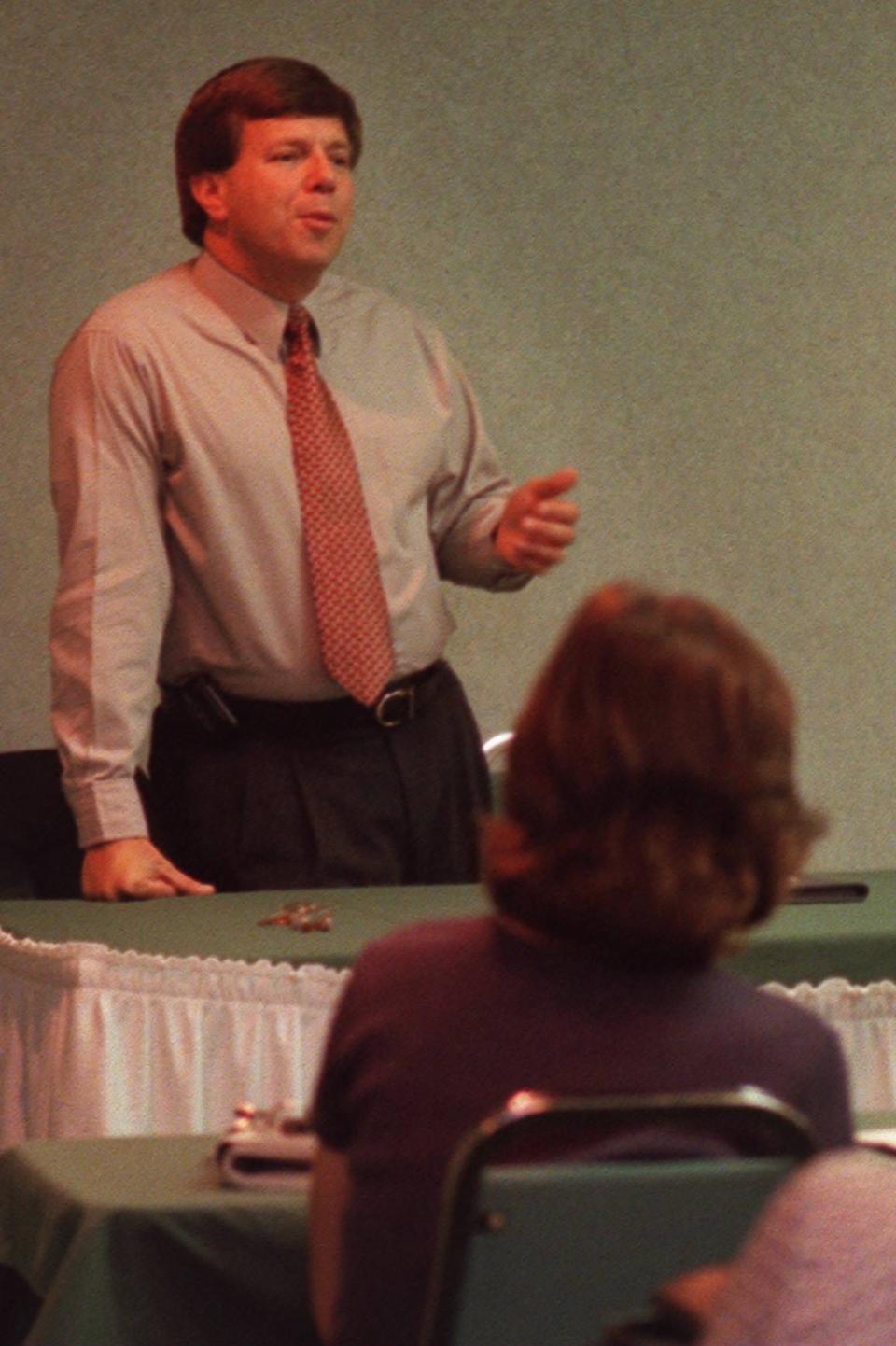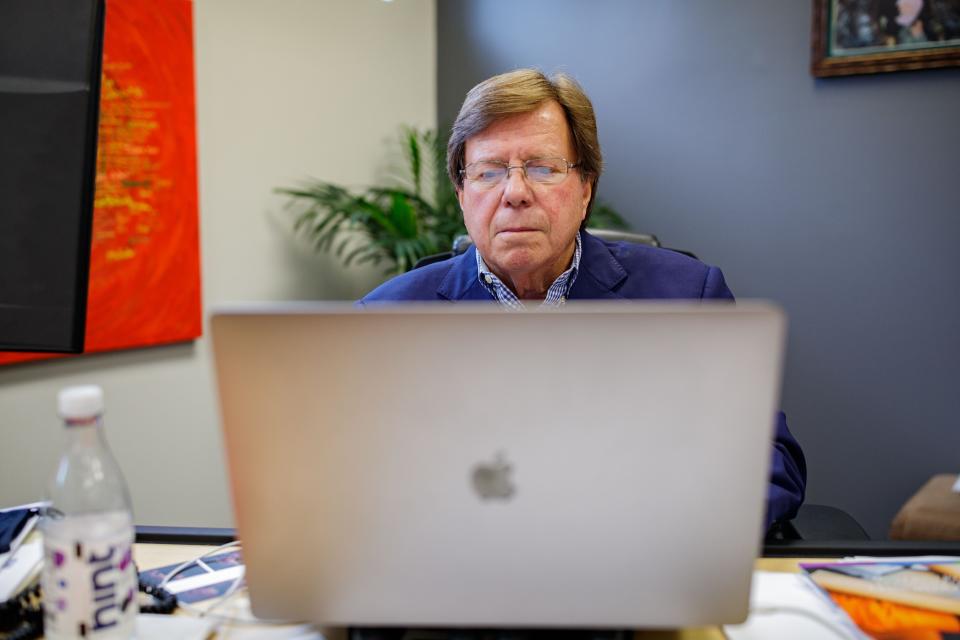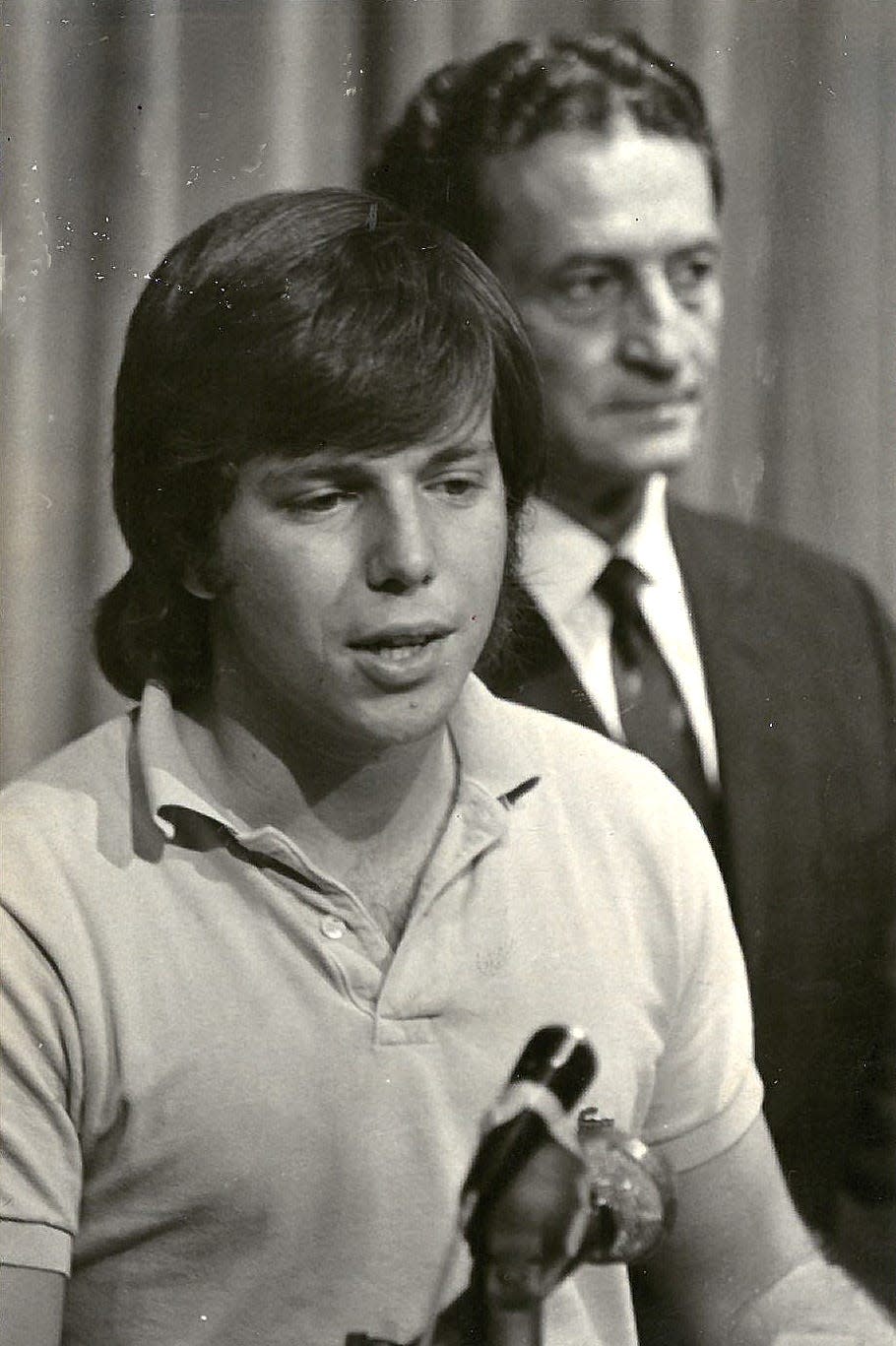UF's Alligator student newspaper, Ron Sachs on front lines of abortion fight 50 years ago
A 21-year-old Ron Sachs sat in the Alachua County jail after a deputy ominously told him, "I knew we would get you here someday."
It was 1971, and Sachs, founder and CEO of Sachs Media, one of Tallahassee's marquee public relations firms, had gotten cross-wise with the Sheriff's department over a student newspaper article about a murder and conditions at the jail.
But that article wasn't what landed Sachs in a jail cell.
As editor-in-chief of The Florida Alligator, the University of Florida student newspaper, Sachs was an early warrior in today's culture war.

Fifty years ago during the Woodstock era, Sachs violated Florida's "Don't Say Abortion" law, an 1868 ban on the publication of abortion resources and was arrested.
He and the Alligator's staff inserted a list of abortion providers and counseling services into the daily paper after the school's president had forbade it.
With a bravado recognizable to almost everyone who has crossed his path as a journalist, top aide to former Gov. Lawton Chiles, or public relations expert, Sachs explained he respectfully listened to President Stephen C. O'Connell, dictum and then rallied staff to ignore it.
And he signed his name at the bottom of a mimeographed list inserted in more than 22,000 copies of the newspaper so that the University and law enforcement would know who was responsible.
"If something bad was going to happen, I wanted it to happen to me, just me, and not others," explained Sachs.

He was charged with a felony and his lawyers mounted a First Amendment defense that led to Florida's abortion law being declared unconstitutional.
"If a newspaper did not have the right to publish the information then women did not have access," Sachs told the Tallahassee Democrat.
Sachs won his fight, but a half-century later a new front in a fight for the right to an abortion has opened.
The Supreme Court overturned Roe v. Wade, waiving a woman's constitutional right to abortion, and nearly half of the states have or are expected to enact abortion bans.
At least 22, according to the Guttmacher Institute, already have laws in place that would do just that.
Four states, including Florida, are likely to follow suit, as Republican lawmakers passed a 15-week abortion ban in April. It went into effect in July.
“The pendulum now is swinging back to the right,” said Sachs, now 71.
Reversal: Supreme Court overturns Roe v. Wade, eliminating constitutional right to abortion
Q & A: The fall of Roe v. Wade: Five questions about abortion access in Florida
Abortions in Florida: Now that Roe v. Wade has been overturned, what's legal and what's not
Alligator's history with abortion
Jean Chance, was just four years into her journalism teaching career when she opened the doors to her home to five students plotting Sachs' defense.
Nestled in Chance’s wooded home off Millhopper Road, the students debated the publication of abortion referral agencies for those in need.
The list became part of an ongoing special report on abortion, that included the Catholic Student Center. The Board of Student Publications, governing agent of the Alligator, approved the article. University of Florida President Stephen O’Connell, however, overrode the board’s decision and forbade Sachs and others from running it.
The Alligator staff unanimously voted to print the list anyway.

“Breaking the law can be a healthy experience,” wrote columnist John Parker in the Oct. 4, 1971 edition. He pointed out that a Florida statute prohibited juggling and called jugglers a “hearty breed.”
Chance shuffled upstairs and woke up her lawyer husband at the time, Chuck Chance. She vowed to hand Sachs a dime to make a landline call once Sachs got arrested for publishing the article if he chose.
Being a rebel wasn't new to Sachs, who also disobeyed the orders of his high school principal in his senior year to cover a teacher strike. The principal suspended him for two weeks. But in this case, he faced far more dire circumstances: a year in prison or a $1,000 fine for the felony and expulsion.
Luckily for Sachs, Chuck Chance agreed to represent him in the trial.

Now the couple was all in.
“We teach the First Amendment at every journalism course in our college,” Jean Chance said. “Not to stand up would be so hypocritical.”
Around 2 a.m., just before publication, Sachs called O’Connell from Chance’s telephone. Sachs apologized for the late call and informed him he planned to “respectfully disobey” his directive.
“I wasn't trying to surprise him or sucker punch him," Sachs said. "I just wanted to tell him the truth. We thought we owed it to our responsibility as budding journalists, as Alligator staffers, and as students to take on this law.”
In a pre-dawn bustle on Oct. 6, Sachs and the staff stashed the papers with 22,000 copies of the counseling list. The copies ran alongside an article written by Sachs titled “Archaic abortion law gets another test,” where he wrote: “Florida Statute 797.02 is unconstitutional, restraining the press from printing what are well-acknowledged facts that abortions may be legally obtained.”
Sachs was arrested that same day.
'Breaking the law can be a healthy experience: UF's Alligator student newspaper battled on front lines of abortion issues 50 years ago
His parents received newspaper clippings of Sachs outlined in devil horns. Gainesville Sun editorial writer at the time, Buddy Davis, berated Sachs in the paper. But Sachs said he never regretted the decision.
“I didn't have some yearning desire to go to prison,” Sachs said. “When you're in the slammer, it’s not a really good graduate course for somebody who wants to be a newsman. But I felt we were on solid ground.”
Two months later, Sachs’ notion held firm. Alachua Judge Benmont Tench struck down the abortion law, which had stood for 103 years.
Florida’s restrictions on newsrooms lifted, and the Legislature rewrote the law. The law was not the most liberal in the country, but Sachs said it was “more 1971.”
A rift with UF
Though abortion rights advanced in 1971, The Alligator's future faced uncertainty.
O’Connell, a former Florida Supreme Court chief justice, questioned in October if he held prior restraint, meaning the power to censor materials. The attorney general’s office said “no.” So O'Connell forced it off-campus. Soon monetary flow halted.
Some viewed it as an effort to kill off the student publication. But it allowed it to become independent, self-sustaining, and completely detached from UF. The change allowed critical discussion over issues without fear of retribution from campus officials.
In May, following the leaked draft of the Roe v. Wade reversal, the newspaper published a Planned Parenthood advertisement highlighting abortion clinics.
“Seeing that go out was very critical to the whole reason that we are independent, and we have the liberty to report on things that we otherwise maybe wouldn't have,” said Julia Coin, the paper's current editor-in-chief. “It allows us to act as journalists first and students second.”
Moving forward from the past
Jean Chance, now 82, remembers seeing much change over the years in Alachua County.
In her senior year, the women’s dress code loosened; they could finally wear Bermuda shorts, situated two inches above the knee. Women’s liberation still didn't exist, she said.
She remembers students rioting for beer stronger than the 3.2% alcohol the county sold, she said.
Now, she said the Supreme Court retrogresses.
“We are in the midst of a major shift from a more moderate or liberal ruling to…an extreme ruling on the conservative side,” she said. “It’s astounding, historically speaking, for this to happen. I think there is an undercurrent of racism; there is an undercurrent of elitism. It does not speak well for the moral compass.”
Chance said she is most concerned for her daughter, her granddaughter and her daughter-in-law.
“I feel bad for my family because they are the ones that are going to have to make the (changes),” she said.
Tallahassee Democrat reporter James Call contributed to this story.
Never miss a story: Subscribe to the Tallahassee Democrat using the link at the top of the page.
This article originally appeared on Tallahassee Democrat: UF Alligator student paper was on abortion issue front lines 50 years ago

